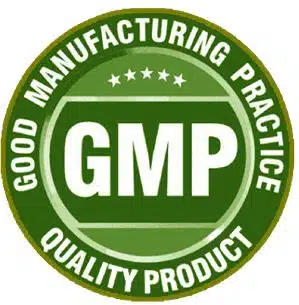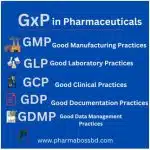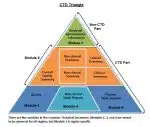“Learn essential (Good Manufacturing Practices) GMP Guidelines for pharmaceutical industry. Ensure compliance and quality with our expert guide.”
Table of Contents
Introduction
In the pharmaceutical industry, adherence to (Good Manufacturing Practice) GMP guidelines is of utmost importance to ensure the safety, efficacy, and quality of products. Compliance with these guidelines is not only necessary for domestic production but also for export and occasional drug use in the country of production. Manufacturers must comply with GMP requirements and regulations to meet quality assurance standards and ultimately drive profitability in the pharmaceutical industry.

Importance of GMP Guidelines Compliance
Compliance with Good Manufacturing Practice guidelines is essential to guaranteeing that pharmaceutical products are manufactured, tested, and controlled consistently according to established quality standards. These guidelines cover a wide range of activities, such as facilities, equipment, personnel training, documentation practices, quality control measures, and record-keeping procedures.
By adhering to Good Manufacturing Practices requirements, pharmaceutical companies can ensure that their
Understanding the Importance of Good Manufacturing Practices in the Pharmaceutical Industry The pharmaceutical industry operates in a highly regulated environment due to the critical nature of its products
Pharmaceutical products directly impact the health and well-being of consumers. To ensure that these products are safe, effective, and of high quality, pharmaceutical companies must adhere to Good Manufacturing Practice guidelines. Manufacturers that comply with Good Manufacturing Practices requirements guarantee that their products are manufactured, tested, and controlled consistently according to established quality standards. This includes maintaining appropriate facilities and equipment, training personnel adequately, properly documenting practices and procedures, implementing strict quality control measures, and maintaining accurate records.
Not only does adherence to GMP guidelines ensure product safety for consumers but it also plays a crucial role in protecting the reputation of pharmaceutical companies. By following
Key Principles of GMP Guidelines
Good Manufacturing Practice guidelines are rooted in a set of key principles that must be followed by pharmaceutical manufacturers. These principles include:
1. Factory Premises and Equipment
GMP mandates that pharmaceutical manufacturing facilities are designed, constructed, and maintained in a way that prevents contamination, mix-ups, and other potential risks. Adequate and well-maintained equipment, along with validated processes, are essential for ensuring product quality.
2. Personnel
GMP requires that pharmaceutical manufacturers employ qualified and trained personnel who are responsible for carrying out their tasks effectively. Training programs, including ongoing training and competency assessments, should be in place to ensure that employees are aware of and adhere to Good Manufacturing Practices requirements.
3. Quality Management Systems:
GMP emphasizes the establishment and implementation of a robust quality management system (QMS). This includes documenting procedures, conducting regular audits, and maintaining comprehensive records.
4. Raw Materials:
GMP specifies that pharmaceutical manufacturers should establish controls to ensure the quality and traceability of raw materials used in the production process. This includes proper storage, handling, and testing of raw materials to prevent contamination or adulteration.
5. Process Validation
Good Manufacturing Practices require pharmaceutical manufacturers to validate their manufacturing processes to demonstrate that they consistently produce products meeting the desired quality standards. This involves conducting thorough testing and analysis to ensure that the processes are reliable and produce the intended results.
6. Quality Control Testing:
Good Manufacturing Practices emphasizes the need for comprehensive quality control testing throughout the manufacturing process. This includes in-process testing, finished product testing, stability testing, and testing of raw materials. Testing should be performed using validated methods and appropriate instruments.
Please also read: SOP in the Pharmaceutical Industry
7. Documentation and Record Keeping
Accurate and complete documentation is a crucial aspect of Good Manufacturing Practices. Manufacturers must maintain detailed records of all activities, including production, testing, and distribution. This documentation helps in traceability, investigation of deviations, and overall quality control.
8. Packaging and Labeling:
GMP regulations cover the proper packaging and labeling of pharmaceutical products to ensure accurate and safe usage. Packaging materials should be suitable for their intended purpose, and labeling should include necessary information such as product name, strength, dosage instructions, and warnings.
9. Handling of Complaints and Product Recalls
Good Manufacturing Practices require pharmaceutical manufacturers to have procedures in place for handling customer complaints and managing product recalls if necessary. These procedures help in identifying and addressing potential product quality issues and ensuring patient safety.
Inspections performed by regulatory agencies like the Food and Drug Administration (FDA) in the United States or the European Medicines Agency (EMA) in Europe are often used to determine compliance with GMP standards. Non-compliance with GMP can result in regulatory actions, including product recalls, fines, or the suspension of manufacturing licenses.
It’s very important to note that GMP requirements may vary slightly between different countries and regions, but the overall goal remains the same: ensuring the quality and safety of pharmaceutical products.
Conclusion
In conclusion, adhering to Good Manufacturing Practices is crucial for the pharmaceutical industry to ensure the safety, efficacy, and quality of drugs. Compliance with GMP rules ensures that pharmaceutical companies meet regulatory standards, maintain consistency in production processes, and ultimately safeguard public health.
Frequently Asked Questions (FAQs)
What is GMP in Pharma?
GMP stands for “Good Manufacturing Practice.” In the pharmaceutical industry, GMP refers to a set of guidelines and regulations that ensure the quality, safety, and efficacy of pharmaceutical products throughout their manufacturing, packaging, and distribution processes. Good Manufacturing Practices standards are in place to ensure that pharmaceutical products are consistently produced and controlled according to established quality standards.
What are the 5 principles of Good Manufacturing Practices?
The five key principles of Good Manufacturing Practice (GMP) are:
a. Quality: The primary goal of Good Manufacturing Practices is to ensure the quality and safety of pharmaceutical products.
b. Personnel: Qualified and trained personnel should be employed to perform all tasks that could affect the quality of the product.
c. Premises: Facilities and equipment should be designed, maintained, and operated in a way that prevents contamination and ensures product quality.
d. Processes: Clear and well-defined procedures should be established and followed for all manufacturing and quality control processes.
e. Documentation: Accurate and detailed documentation of all processes, procedures, and results is essential to demonstrate compliance with Good Manufacturing Practices regulations.
What is the GAMP 5 guide?
The International Society for Pharmaceutical Engineering (ISPE) created the GAMP 5 (Good Automated Manufacturing Practice) manual. It provides a framework for the validation and compliance of automated systems used in pharmaceutical manufacturing and related industries. GAMP 5 outlines principles and best practices to ensure the proper development, implementation, and maintenance of computerized systems in a regulated environment.
What are the 10 principles of Good Manufacturing Practices?
Good Manufacturing Practices is a set of quality assurance guidelines and principles that ensure the production of safe and consistent pharmaceutical, food, and medical products. Here are the 10 fundamental principles of GMP:
Quality Management System: Establish and maintain a comprehensive quality management system to oversee all aspects of production, quality control, and documentation.
Personnel: Employ trained and qualified personnel with appropriate skills and knowledge, and provide ongoing training to ensure their competence.
Premises and Facilities: Provide suitable and well-maintained facilities, equipment, and infrastructure that adhere to hygiene and safety standards to prevent contamination and cross-contamination.
Documentation: Maintain accurate and comprehensive documentation of all processes, procedures, and activities to ensure traceability and transparency.
Production Process: Follow well-defined and validated manufacturing processes that consistently yield products of the desired quality.
Quality Control: Implement robust quality control procedures to monitor and test products at various stages of production, ensuring they meet predetermined specifications.
Validation and Qualification: Validate and qualify critical equipment, processes, and systems to ensure they consistently produce the intended results.
Complaints and Product Recall: Establish procedures to handle customer complaints and initiate product recalls promptly and effectively when necessary.
Out-of-Specification (OOS) Handling: Implement procedures to manage and investigate any deviations or out-of-specification results to ensure product quality and safety.
Continuous Improvement: Continuously monitor, review, and improve all aspects of the manufacturing process to enhance product quality, safety, and overall efficiency.
These principles are essential to maintaining the integrity of the products being produced and to safeguarding public health by ensuring that pharmaceuticals, food, and medical products meet the required standards for quality and safety.
What is the difference between GMP and SOP?
GMP (Good Manufacturing Practice) and SOP (Standard Operating Procedure) are related but distinct concepts. GMP refers to the overarching set of guidelines and regulations that ensure the quality and safety of pharmaceutical products during their manufacturing, packaging, and distribution. SOPs, on the other hand, are detailed documents that outline the step-by-step procedures and instructions for specific tasks and processes within a manufacturing or quality control environment. SOPs are used to operationalize GMP principles and ensure consistency and compliance in daily activities. In essence, GMP sets the regulatory framework, while SOPs provide the practical instructions to adhere to that framework.

Abdus Sobhan Salim is professional experienced pharmacist in pharmaceuticals, author and founder of pharmabossbd.com, the first Bangladeshi pharmaceutical blogger since 2019.




Thanks for your good article
Thanks